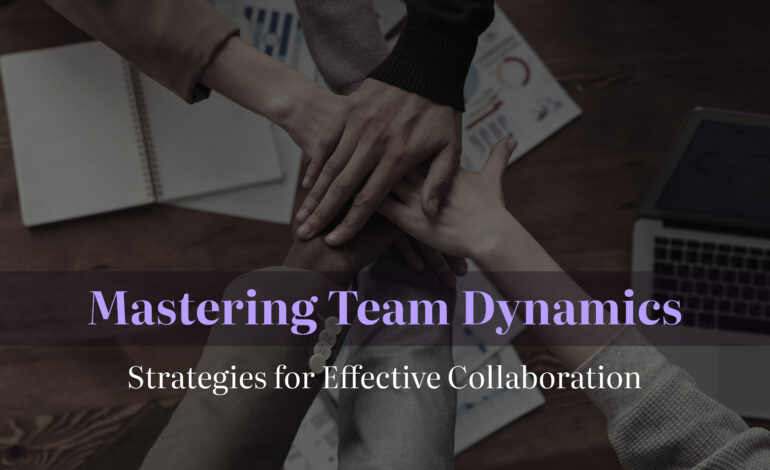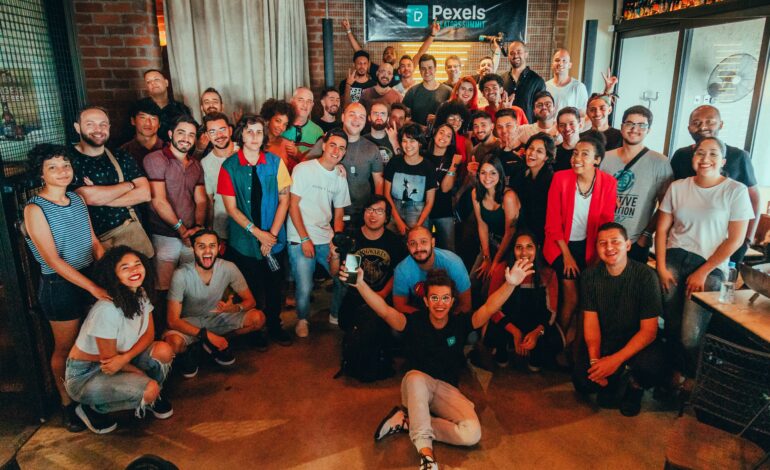
Introduction
In today’s dynamic work environment, collaboration is no longer a luxury, it’s a necessity. Businesses thrive on the collective power of teams, where diverse skill sets and perspectives come together to achieve shared goals.
However, fostering effective collaboration requires more than just assembling a group of talented individuals. Mastering team dynamics is the key to unlocking a team’s true potential.
This article dives deep into the concept of team dynamics, exploring the factors that contribute to successful collaboration and outlining actionable strategies for building a high-performing team.
Understanding Team Dynamics
Team dynamics refer to the complex interplay of individual personalities, communication styles, working habits, and group behaviors within a team. It encompasses factors like:
- Trust and psychological safety: Team members need to feel comfortable taking risks, sharing ideas, and offering constructive criticism without fear of judgment.
- Communication: Clear, open, and two-way communication is essential for effective collaboration. Understanding different communication styles can bridge gaps and ensure everyone feels heard.
- Roles and responsibilities: Well-defined roles ensure everyone understands their individual contributions and how they fit into the overall project.
- Conflict resolution: Disagreements are inevitable. Effective teams have mechanisms for addressing conflict constructively and reaching solutions.
- Shared goals and values: A clear understanding of the team’s purpose and what motivates each member fosters a sense of unity and commitment.
Strategies for Building Effective Team Dynamics
1. Team Building Activities: Engaging team-building activities can help break the ice, promote communication, and build trust among team members. These activities can range from collaborative games and problem-solving exercises to social outings that allow people to connect outside of work.
2. Clear Communication Practices: Establish clear communication protocols that ensure everyone is on the same page. This includes setting expectations for email response times, meeting schedules, and preferred communication channels (e.g., email, project management tools, instant messaging).
3. Encouraging Open Communication: Create a safe space for open dialogue and encourage team members to express their ideas, concerns, and feedback without fear of reprisal. Active listening skills are crucial for fostering a culture of open communication.
4. Role Clarification and Goal Setting: Clearly define individual roles and responsibilities within the team to avoid confusion and ensure everyone understands their contribution to the project. Set SMART goals (Specific, Measurable, Achievable, Relevant, and Time-Bound) for the team as a whole, as well as individual milestones, to keep everyone accountable and motivated.
5. Celebrating Successes: Recognize and celebrate both individual and team achievements. This reinforces positive behaviours, boosts morale, and keeps everyone motivated towards achieving the common goal.
6. Diversity and Inclusion: Embrace diversity in terms of backgrounds, skills, and perspectives. Inclusive team environments allow everyone to contribute their unique strengths, leading to richer ideas and more innovative solutions.
7. Conflict Resolution Strategies: Equip your team with conflict resolution skills to address disagreements constructively. Encourage open communication, active listening, and a focus on finding solutions rather than assigning blame.
Conclusion
Building a strong team isn’t about assembling a collection of talented individuals; it’s about creating a well-coordinated unit where diverse strengths and perspectives harmonize towards a shared goal.
Remember, effective collaboration is an ongoing journey. Embrace these strategies, celebrate successes, and learn from challenges. So, conduct the symphony of success – watch your team rise to the challenge and deliver exceptional results.









